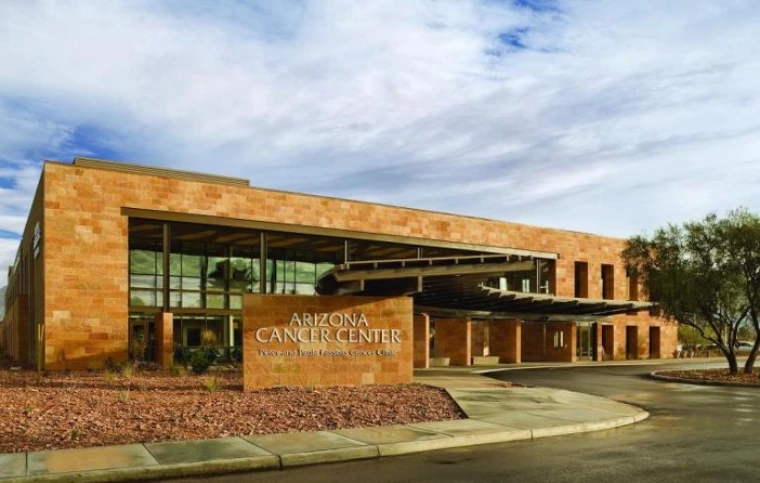
Information on Support Groups
A team of physicians, nurses, social workers, lay navigators, nutritionists and therapists provide an array of consultations and ongoing treatments to promote healing through the cancer journey.
Find out more here about the Telephone Symptom Management Support Program for cancer survivors and caregivers, by University of Arizona Cancer Center member Terry Badger, PhD, RN.
Psychosocial Oncology
Consultation and multidisciplinary psychosocial care for patients, families and other support providers
- Oncology social work – counseling, education and accessing resources
- Psychotherapy support
- Psychiatry consultation and treatment, integrated within the cancer treatment team
- Collaborative team approach to treatment of depression
- Living with Cancer support group for all patients and others touched by cancer
- Support groups for Men, Metastatic diseases, LGBTQ and Couples
- Specific Disease Support group—Gyn-Oncology, Thyroid, Multiple Myeloma, Prostate and Leukemia and Lymphoma.
Education, Coordination and Navigation
Support for educated and informed decision making and self-care
- Oncology nursing care coordination and navigation
- Chemotherapy education classes
- Nutrition assessment and counseling
- Lay Patient Navigation
- Integrative and Supportive Care Survivorship Clinic
Supportive Care Clinic
Consultation based on whole-person care, providing patients and their families with effective evidence-based interventions to optimize health and reduce the risk of cancer recurrence. If you would like to meet with any of the physicians below, please ask your oncologist for a referral to the supportive care clinic. This clinic has physicians trained in Integrative Medicine, Palliative Care and Survivorship. See definitions of each:
Palliative Care is specialized medical care for people with a serious illness such as cancer. This type of care is focused on providing relief from the symptoms and stress of a serious illness. The goal is to improve quality of life for the patient and family.
Integrative Medicine is healing-oriented medicine that takes account of the whole person, including all aspects of lifestyle. It emphasizes the therapeutic relationship between practitioner and patient, is informed by evidence, and makes use of all appropriate therapies.
Survivorship in cancer focuses on the health and life of a person with cancer post treatment until the end of life. This includes issues related to the ability to get health care and follow-up treatment, late effects of treatment, second cancers, and quality of life.



